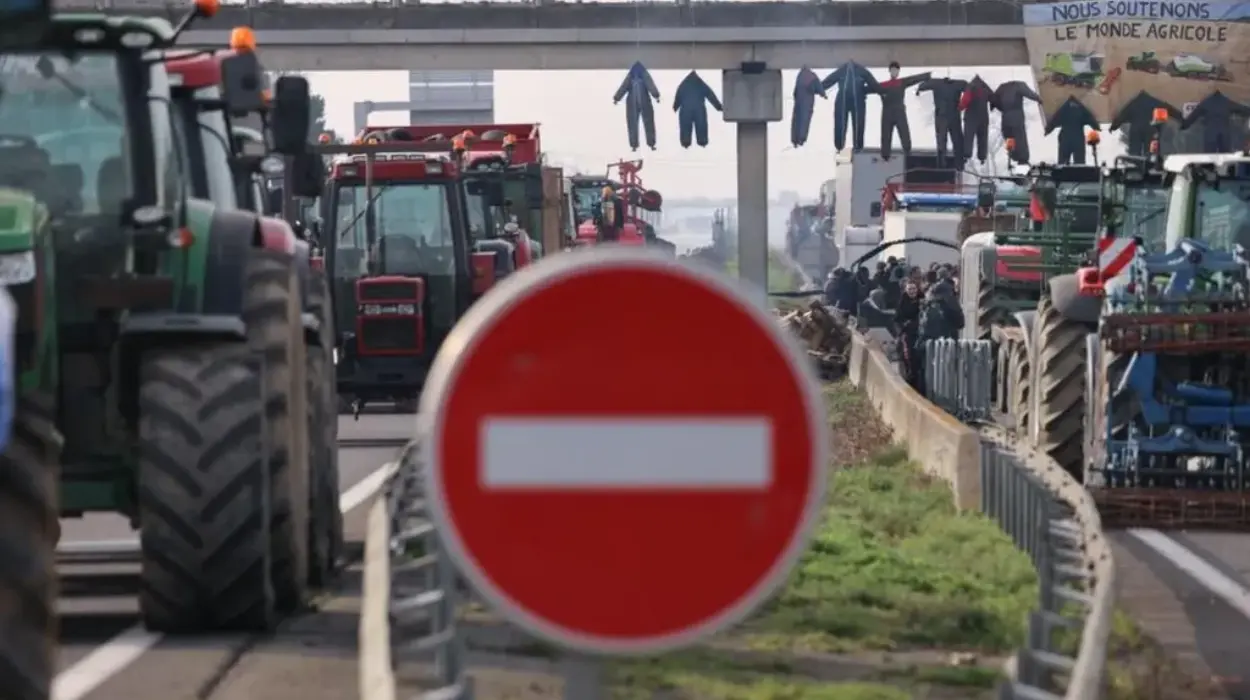Europe (Transatlantic Today)— Farmers across Europe have mobilized in large numbers, blocking roads and staging protests to express their frustrations over rising costs and EU regulations. Struggling with the cost of living crisis, they are now also contending with sustainability policies and the effects of the war in Ukraine.
In France, farmers have blocked highways, creating a political crisis for Prime Minister Gabriel Attal, who has introduced measures to ease their concerns. Issues range from national bureaucracy to broader challenges such as the high cost of farm diesel, delayed EU subsidies, and competition from imports. The protests escalated when a young farmer and her daughter were tragically killed during a roadblock demonstration.
Germany has seen similar unrest, particularly over the government’s plan to phase out tax breaks on agricultural diesel. Farmers argue this could push many into bankruptcy. National strikes have taken place, reflecting the growing anger at EU policies.
The EU’s revised Common Agricultural Policy (CAP) has also sparked widespread discontent. The CAP’s sustainability measures, such as setting aside 4% of arable land for non-productive features and reducing fertilizer use, are seen by many farmers as making Europe less competitive against imports. Inflation has also eroded the value of EU direct payments, worsening the situation for many.
The war in Ukraine has further complicated matters, as the EU lifted restrictions on Ukrainian imports, leading to a flood of cheaper agricultural products into European markets. This has undercut prices in countries like Poland, Romania, and Hungary, where farmers have protested Ukrainian competition. In response, Eastern European nations are calling on the EU to reassess its trade liberalization with Ukraine.
Southern Europe has so far seen fewer protests, but drought and climate change are likely to ignite future unrest in countries like Italy and Spain. Farmers there are already facing water shortages, and regional protests have emerged in places like Sicily over the lack of compensation for weather-related losses.
With European elections approaching, these protests have caught the attention of Eurosceptic parties. While some fear the protests could empower extremists, experts argue that farmers are more focused on survival than politics.
EU officials, including President Ursula von der Leyen, have acknowledged the growing divide and have initiated talks with agricultural groups. However, for many farmers who feel neglected and unable to support their families, these efforts may not be enough to quell the rising tide of discontent across Europe.


























